NOTES: On Mid-21st Century Undergraduate Education, & Virgil's Prophecy of Jupiter: "Imperium sine Fine Dedi"
How universal are the human values of freedom & rights, anyway? & can or should there be universal human values? & how do we even begin to think about how we should think about such questions, &...
How universal are the human values of freedom & rights, anyway? & can or should there be universal human values? & how do we even begin to think about how we should think about such questions, & about the downstream question of what kind of human society (or societies) we should be trying to build? No, I do not have conclusions. But I do have notes—I seem to have more than 20,000 words circling around this topic…
One of the very nice things about being at a university is that one does occasionally wind up sitting outside in the warm afternoon spring sun, drinking espresso drinks, and quoting the line from Virgilis Maro’s Æneid of the Prophecy of Jupiter to each other: “Imperium sine fine dedi…”—For these (Romans) I (Jupiter is speaking) set no limits, world or time/But make the gift of empire without end…
Iuppiter: At puer Ascanius, cui nunc cognomen Iulo Additur,—Ilus erat, dum res stetit Ilia regno,— Triginta magnos volvendis mensibus orbis Imperio explebit, regnumque ab sede Lavini Transferet, et longam multa vi muniet Albam. Hic iam ter centum totos regnabitur annos Gente sub Hectorea, donec regina sacerdos, Marte gravis, geminam partu dabit Ilia prolem. Inde lupae fulvo nutricis tegmine laetus Romulus excipiet gentem, et Mavortia condet Moenia, Romanosque suo de nomine dicet. His ego nec metas rerum nec tempora pono; Imperium sine fine dedi... Jupiter: Ascanius, to whom the name of Iulus Now is added—Ilus while Ilium stood— Will hold the power for all of thirty years, Great rings of wheeling months. He will transfer His capital from Lavinium and make A fortress, Alba Longa. Three full centuries That kingdom will be ruled by Hector's race, Until the queen and priestess, Ilia, Pregnant by Mars, will bear twin sons to him. Afterward, happy in the tawny pelt His nurse, the she-wolf, wears, young Romulus Will take the leadership, build walls of Mars, And call by his own name his people Romans. For these I set no limits, world or time, But make the gift of empire without end...
The point at issue was that Virgilius Maro and those who propagated his book really did create—among Roman society’s literate élite, or at least among a particular but intellectual subsection of that élite—a strong element of collective consciousness that had powerful and real results in influencing human action: the belief that Rome was (or ought to be) universal empire, not one of several roughly equivalent human civilizations, but the only real game in town—much like the attitude of Yankees fans toward the Red Sox, which in their estimation is not a real baseball team.
This Roman imperial élite attitude stood in contrast to the more usual view of literate élites in the western tip of Eurasia over the past 2000 years.
In the more usual view, men of the élite in “the West” who thought about such things typically saw themselves as one of several roughly equivalent human civilizations—but one that, very importantly, was special in important ways, according to an element of collective consciousness created by Hēródotos Halikarnāsseús and his propagators.
What ways?
Most prominently that it was the civilization in which men (of status and standing, at least) had (some, at least) protection from the law against arbitrary and whimsical cruelty at the hands of the more powerful. But the two strains would combine, and so we wound up talking about Kuwait, Bosnia, Rwanda—and Sudan, Ukraine, Gaza—and how a self-described “West” seeing itself as one of several human high civilizations could nevertheless be the source of action motivated by the ideology that its valuable ideas of freedom and rights were qualitatively different from ideas elsewhere, and justified (attempts to) becom(ing) universal empire.
Not, mind you, that we can or should reject ideas that freedom and rights should be universal just because they are in some sense rooted in Virgilius Maro and in Hēródotos Halikarnāsseús, and that the first was rather eager to please his patron Augustus, while the second was eager to flatter Athenians, for he wished for the Assembly of Athens to become his patron, and then grant him Athenian citizenship.
All of this is prologue to say: I am once again trying to think what kinds of non-STEM things undergraduates should learn today, so that they can be good cosmopolitan citizens for the benefit of the globe and good stewards of their own life chances in the world of human society as it will be in the 2050s or so. Why am I thinking this? Because Chenxi Tang from the German Department is taking over Berkeley’s Interdisciplinary Studies Field major, and needs support as he thinks about how he should guide his students as they construct their own highly interdisciplinary courses of study. And I confess I wish I had more actionable conclusions to offer him.
Yet I find that I do not—or do not yet. I also find that I have been having a fairly large number of thoughts related to this and other questions. But they do not cohere, or they do not yet cohere.
Hence I was excited to read Timothy Burke:
Timothy Burke: Academia: Don’t Pay the Trolls, But Do Cross the Bridge: ‘I may be unusual in my thinking when I say that any structured principle providing connective tissue in a curriculum is better than none, but that’s how I see it. I can make a case for and against a Great Books humanism, for and against a kind of mini-MIT approach where humanities leaven and supplement STEM learning, for and against a strong general education core, and so on. I can think of at least ten coherent designs…
But, alas! He has not written it up yet:
Timothy Burke: Academia: Don’t Pay the Trolls, But Do Cross the Bridge: ‘[For my list:] Stay tuned! That's next week's column…
In any event, this is how this particular dog has been worrying this particular bone since the plague began:

Hobbist & Lockeian Underlying Assumptions, & Adam Smith Thought, & BRIEFLY NOTED: for 2023-01-15 Su
References:
Bhandari, Rakesh; J. Bradford DeLong, & Dylan Rily. 2023. “ Brad DeLong Flies His Orthodox Engelsist Freak Flag on Transformations in þe Mode of Production”. Grasping Reality. February 4. <https://braddelong.substack.com/p/brad-delong-flies-his-orthodox-engelsist>.
Burke, Timothy. 2024. “Academia: Don’t Pay the Trolls, But Do Cross the Bridge”. Eight by Seven. March 14. <http://timothyburke.substack.com/p/academia-dont-pay-the-trolls-but>.
DeLong, J. Bradford. 2010. “The Barrington Moore Problematic, & Its Discontents”. Grasping Reality. September 19. <https://braddelong.substack.com/p/hoisted-from-e-archives-the-barrington>.
DeLong, J. Bradford. 2021. “What Are We Doing When We Teach ‘Political Economy’?”. Grasping Reality. March 11. <https://braddelong.substack.com/p/what-are-we-doing-when-we-teach-political>.
DeLong, J. Bradford. 2022. “Origins of Fascism in the Modern Pace of Econo-Social Creative Destruction”. Grasping Reality. May 9. <https://braddelong.substack.com/p/hoisted-from-the-archives-origins>.
DeLong, J. Bradford. 2022. “Progress Studies”! Grasping Reality. September 24. <https://braddelong.substack.com/p/progress-studies-and>.
DeLong, J. Bradford. 2023. “Hobbist & Lockeian Underlying Assumptions, & Adam Smith Thought”. Grasping Reality. January 15. <https://braddelong.substack.com/p/hobbist-and-lockeian-underlying-assumptions>.
DeLong, J. Bradford. 2023. “ Brad DeLong Flies His Orthodox Engelsist Freak Flag on Transformations in þe Mode of Production”. Grasping Reality. February 4. <https://braddelong.substack.com/p/brad-delong-flies-his-orthodox-engelsist>.
DeLong, J. Bradford. 2023. “The Algorithm Society & Its Discontents”. Grasping Reality. March 6. <https://braddelong.substack.com/p/the-algorithm-society-and-its-discontents>.
DeLong, J. Bradford. 2023. “DRAFT: Waiting for the Algorithmic Society”. Grasping Reality. March 1. <https://braddelong.substack.com/p/draft-waiting-for-the-algorithmic>.
DeLong, J. Bradford. 2023. “Social Theory for the 21st Century”. Grasping Reality. March 27. <https://braddelong.substack.com/p/draft-for-my-wednesday-night-lecture>
DeLong, J. Bradford. 2023. “‘Honor’ as One of Eight Modes of Human Social Organization”. Grasping Reality. April 4. <https://braddelong.substack.com/p/and-briefly-noted-for-2023-04-03>.
DeLong, J. Bradford. 2023. “Very Brief Notes on Forms of Human Organization”. Grasping Reality. April 8. <https://braddelong.substack.com/p/very-brief-notes-on-forms-of-human>.
DeLong, J. Bradford. 2023. “The Music to the Zombie Dance of Human Society Changes Its Key”. Grasping Reality. June 21. <https://braddelong.substack.com/p/e-zombie-dance-of-human-society-changes>.
DeLong, J. Bradford. 2023. “Engels & Marx as Epigones of Adam Smith the Historical-Materialist Stage Theorist”. Grasping Reality. October 19. <https://braddelong.substack.com/p/engels-and-marx-as-epigones-of-adam>.
DeLong, J. Bradford. 2024. “Can We Provide Algorithmic Society with a More Human Face than Was True of Market, Bureaucratic, or Command-&-Control Society?”. Grasping Reality. January 16. <https://braddelong.substack.com/p/proposals-for-tuning-the-latestalgorithmiccaterw>.
DeLong, J. Bradford; David Grewel, Glory Liu, & Jacob Soll. 2023. “The Market Giveth; The Market Taketh Away: Blessed Be the Name of the Market?” Grasping Reality. January 13. <https://braddelong.substack.com/p/video-e-market-giveth-e-market-taketh>
Hēródotos Halikarnāsseús. ca. -433 [1998]. Historiai. Trans. Robin Waterfield. Athens [Oxford: Oxford University Press]. <https://archive.org/details/histories0000hero>.
Tang, Chenxi. 2024. “Chenxi Tang”. Berkeley: U.C. Berkeley Department of German. <https://german.berkeley.edu/people/chenxi-tang/>.
U.C. Berkeley. 2024. “Interdisciplinary Studies Field Major Map”. Berkeley: U.C. Berkeley ISF. <https://ue.berkeley.edu/sites/default/files/interdisciplinary_studies_field.pdf>.
Virgilius Maro, Publius. -19. Æneis. Rome: Varius Rufus & Plotius Tucca. <https://gutenberg.org/files/227/227-h/227-h.htm>.
Virgilius Maro, Publius. 1983l The Æneid. Trans. Robert Fitzgerald. New York: Vintage Classics. <https://archive.org/details/aeneid0000virg_q0z5/page/n8/mode/1up>


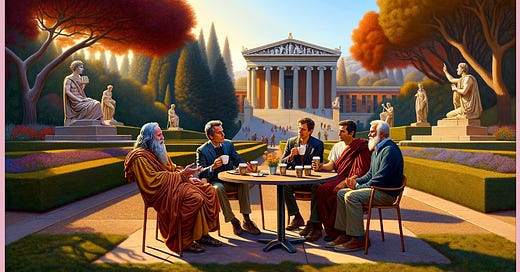




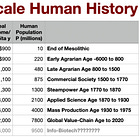




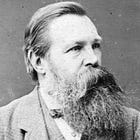



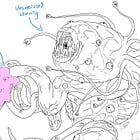



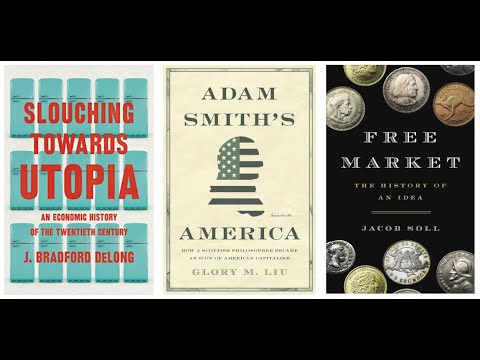
Pondering enlightment for/of universal human values? -- especially <individual> freedom & rights?
The movie "A Few Good Men" comes to mind.
Defense of Dawson and Downey, accused of murder and facing court-martial, leads to the testimony of Colonel Nathan Jessep(played by Jack Nicholson). Questioning contradictions in Jessep's testimony, defense attorney Kaffee (Tom Cruise) asks for the truth. Jessep upholding the military's and his own importance to national security-- shouts-- "Truth? You can't handle the truth!"
Jessep is arrested before he can leave the court room.
Dawson and Downey are cleared of murder but found guilty of "conduct unbecoming" and will be dishonorably discharged
Downey doesn't get it and want to know what they did wrong? Dawson explains they failed to protect those too weak to propect themselves.
Kaffee, tells Dawson he doesn't need a patch on his sholder to have honor.
Demi Moore, looks hot in uniform
I think related to your musings, and you may have seen this already, in today's post Bret Devereaux references his article in Foreign Policy on the value of studying history:
"I wrote recently in Foreign Policy about how “The History Crisis Is a National Security Problem,” noting how U.S. security relies on a steady supply of historians to various parts of the Departments of Defense and State as well as an educated citizenry prepared to understand the questions being put to them in elections (as noted above!). It is my hope that an article like this might also serve as a model for other historians to use when reaching out to the policy communities connected to their fields – to explain that history education in the United States is in distress and to connect that to the issues policy-makers (with funding dollars) care about."